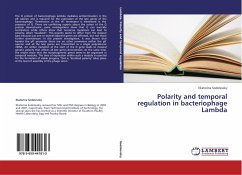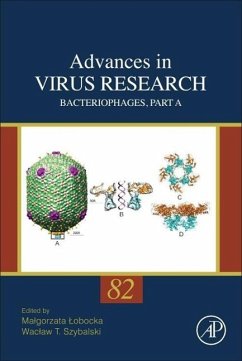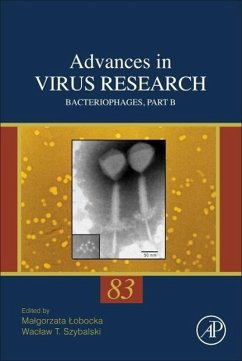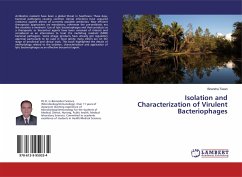
Polarity and temporal regulation in bacteriophage Lambda
Versandkostenfrei!
Versandfertig in 6-10 Tagen
36,99 €
inkl. MwSt.

PAYBACK Punkte
18 °P sammeln!
The Q protein of bacteriophage lambda mediates antitermination in the pR' operon and is required for the expression of the late genes of the bacteriophage. Termination at the tR' terminator is eliminated in the presence of Q. There are conflicting reports about the action of the Q protein downstream: some investigations show that Q can override terminators while others show that nonsense mutations can lead to polarity, albeit "localized". This polarity seems to differ from the classical type because just one or several adjacent genes are affected, but not those further downstream. In the prese...
The Q protein of bacteriophage lambda mediates antitermination in the pR' operon and is required for the expression of the late genes of the bacteriophage. Termination at the tR' terminator is eliminated in the presence of Q. There are conflicting reports about the action of the Q protein downstream: some investigations show that Q can override terminators while others show that nonsense mutations can lead to polarity, albeit "localized". This polarity seems to differ from the classical type because just one or several adjacent genes are affected, but not those further downstream. In the present investigation, it was shown that besides the pR' promoter there are no other promoters within the pR' operon and all the late genes are transcribed as a single polycistronic mRNA. An amber mutation at the start of the D gene leads to classical genetic polarity that affects all late genes downstream. At the same time, the results show that the morphogenetic genes seem to be organized in temporal modules. The time of expression within such a module is essential for the formation of viable progeny. That is, "localized polarity" takes place at the level of assembly of the phage virion.












